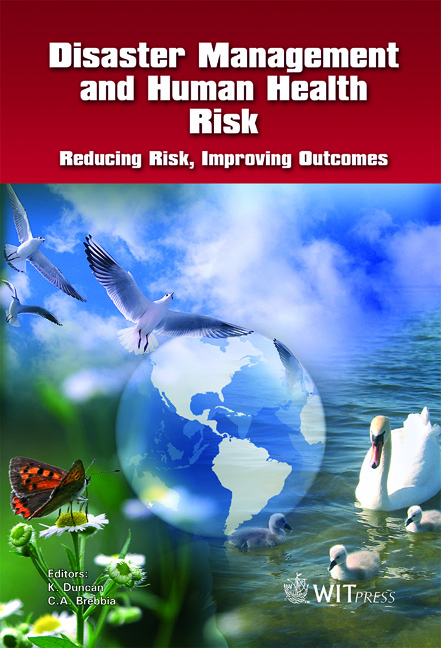AMETRINE: A Humanitarian Camp Management System
Price
Free (open access)
Transaction
Volume
110
Pages
10
Published
2009
Size
2,745 kb
Paper DOI
10.2495/DMAN090081
Copyright
WIT Press
Author(s)
F. Aligne, J. Dréo & J. Mattioli
Abstract
In human made or natural disasters, two of the main stumbling blocks that impede humanitarian action are the poor situation assessment and organisational problems. The difficulty of performing an overall situation assessment often results in misinterpretation and inadequate engagement and action. This lack of efficiency has been outlined by the poor coordination of international aid in the Sri Lanka tsunami in 2004. Citrine project (2006 PASR European project selected in the security theme) addressed these issues and aimed to support the crisis management process in mitigation, damage assessment and preliminary recovery phase, focussing on humanitarian activities provided by NGOs and Health Services. This paper presents the outcomes of the research carried in Citrine to define Ametrine, a decision support module for the management of humanitarian operations in a disaster land. First, the research was dedicated to collect the end-user needs and to find out how the situation can be assessed, monitored and controlled for a humanitarian camp. This was performed so as to follow as close as possible the UNHCR general recommendations (issued from the UNHCR handbooks), the overall goal being to ensure that the fundamental rights of the displaced people and refugees are fulfilled. Based on this analysis, Ametrine addresses the tactical level and is devoted to the set-up and the management of a camp of refugees. Ametrine analyses and provides information and decision support on most aspects of camp operations management, to ensure the access to water, environmental sanitation, shelter, food and health services. Ametrine thus achieves four tasks beyond data
Keywords




